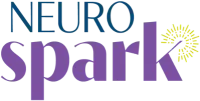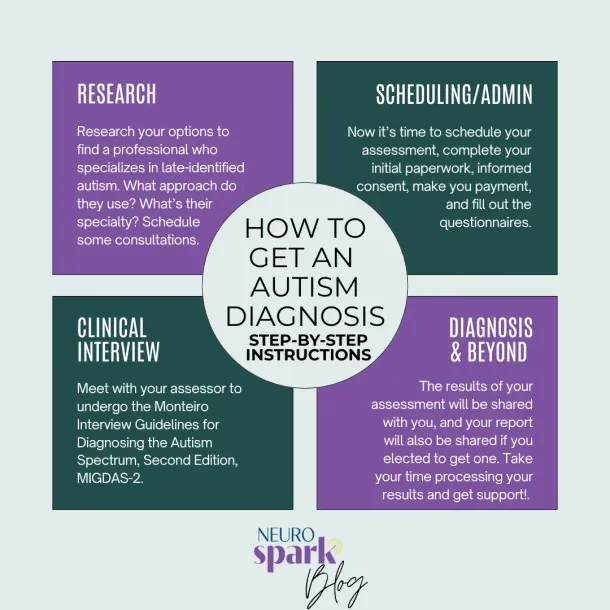How to Find a Clinical Psychologist Specialized in Autism and ADHD Near Me

Table of Contents:
Are you looking for a clinical psychologist who specializes in adult autism and ADHD? You’re not alone. Many adults, especially those who are high-masking, late-diagnosed, or misdiagnosed, struggle to find providers who understand their needs. In fact, NeuroSpark Health was founded because our team personally experienced how hard it was to find neurodivergent-affirming care ourselves.
Whether you’re searching for yourself, a friend, or a family member, this blog will help you understand what to look for and what to avoid when finding an adult autism and ADHD specialist near you.
Why Adult Autism and ADHD Are Often Missed
Gender Bias and Late Diagnosis
Historically, autism and ADHD were studied and diagnosed in white, cisgender boys. Because of this, many girls, women, nonbinary folks, and BIPOC individuals went overlooked for years. Traits were dismissed, misinterpreted, or hidden through masking and camouflaging.
Misdiagnosis and Mental Health Impacts
Adults who go undiagnosed often carry internalized shame or self-blame. They’re more likely to experience anxiety, depression, and burnout, and to be misdiagnosed with unrelated conditions like borderline personality disorder or bipolar disorder.
Why Specialization in Adult Autism and ADHD Matters
What Most General Psychologists Miss
Most psychologists aren’t trained in adult autism and ADHD beyond a surface level. Many rely on outdated stereotypes or miss subtle, internalized traits. This can lead to invalidating experiences or even incorrect diagnoses.
The Role of Co-Occurring Conditions
Autism and ADHD frequently overlap with other experiences like sensory sensitivities, alexithymia, trauma, or executive dysfunction. A specialist will know how to assess these patterns holistically.
The Importance of a Neurodiversity-Affirming Approach
What ND-Affirming Means
Neurodiversity-affirming psychologists don’t see autism or ADHD as problems to fix. They understand these neurotypes as natural variations in how brains work. They prioritize identity-first language, informed consent, and client collaboration.
Why Language and Values Matter
Look for providers who use respectful, inclusive language. If a psychologist talks about “treating autism” or focuses on deficits or assesses autism spectrum disorder (instead of autism), their approach may not align with a strengths-based approach.
Where to Find a Clinical Psychologist Near You
Directories and National Options
Of course, NeuroSpark Health is a great place to start. Our team, including Dr. Julie Landry and assessment experts Drs. Autumn, Bree, Shay, Jaylyn, and Rachel offer affirming autism and ADHD evaluations for adults in most U.S. states.
If you’re looking for an in-person provider or different language access, try these directories:
- Psychology Today (use filters for autism, ADHD, adults, telehealth, etc.)
- Neurodivergent Therapists Directory
- Therapist Neurodiversity Collective
- Open Path Collective (affordable options)
- Local universities or state autism organizations
When Virtual Is Better than Local
Sometimes the best match isn’t in your immediate area. Many clients opt for virtual evaluations because it gives them access to specialized clinicians, shorter wait times, and comfort from home.
How to Vet Psychologists for Autism and ADHD
Training and Credentials
Review their education, certifications, and professional bios. Look for explicit mention of adult autism/ADHD, not just general assessment experience. Specialists will often focus their entire practice on neurodivergence.
What to Look For on Their Website
- Do they use identity-first language (e.g., “autistic person”)?
- Do they offer adult-specific services?
- Do they say “neurodiversity-affirming”?
- Do they mention masking, burnout, or internalized traits?
Interpreting Reviews and Testimonials
Read Google reviews if available. Look for patterns: Do people say they felt seen and understood? Do they mention the provider’s insight into late-diagnosed or high-masking experiences?
What to Ask During the Initial Consultation
Consultations are your chance to get a feel for the provider and see if they’re the right fit. Here are questions you might ask:
- What’s your experience working with autistic and ADHD adults?
- What does “neurodiversity-affirming” mean to you?
- How do you assess for late-diagnosed or high-masking individuals?
- Are you personally neurodivergent, or do you have lived experience?
- Have you worked with people like me (e.g., gender identity, race, trauma history, PDA profile)?
At NeuroSpark Health, all assessment consultations are led by co-founder Dani Rodwell, LCSW, but we’re happy to match you with any clinician on our team based on your preferences.
Making the Final Decision
Choosing a psychologist is personal. Trust your instincts. If a provider makes you feel judged, rushed, or misunderstood, keep looking. A good fit will:
- Make you feel safe and heard
- Respect your identity and preferences
- Value collaboration over hierarchy
- Take your lived experience seriously
You deserve care that’s affirming, accessible, and informed by the latest research and lived experience. Whether you work with us at NeuroSpark Health or find someone else who truly gets it, we hope this guide helps you move one step closer to the support you deserve.
**Please note – this blog is specific to psychologists, but NS values all ND-affirming experts with lived experience, and our assessment team proudly includes LCSWs.
💛 Need Help Finding the Right Psychologist?
Our team works with neurodivergent adults across the U.S. If you’re exploring autism, ADHD, or AuDHD and want a provider who actually understands, we’d love to meet you.

Julie Landry, PsyD, ABPP
One Spark Can Light a Fire
Diagnosis can be the catalyst for significant momentum. It can represent a turning point for your life, where you can move forward equipped with new knowledge about yourself and a new framework to guide you in your journey.
A formal assessment provides an incredible opportunity to gain knowledge about who you are and how you see the world.



